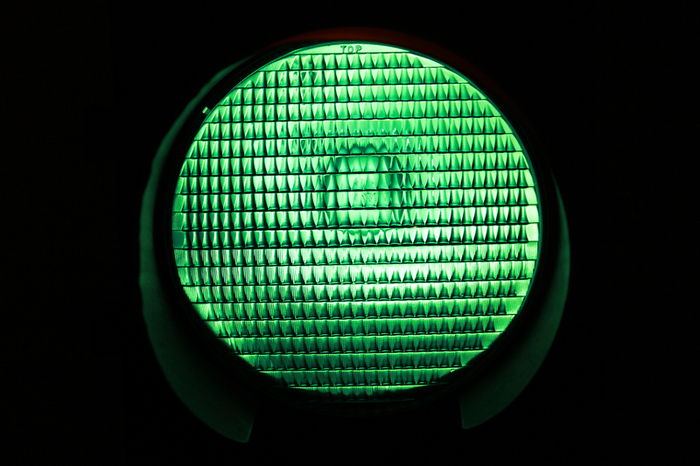- Calls to this hotline are currently being directed to Within Health, Fay or Eating Disorder Solutions
- Representatives are standing by 24/7 to help answer your questions
- All calls are confidential and HIPAA compliant
- There is no obligation or cost to call
- Eating Disorder Hope does not receive any commissions or fees dependent upon which provider you select
- Additional treatment providers are located on our directory or samhsa.gov
Dieting and Eating Disorders: The Good, The Bad, and The Ugly
Currently, it is estimated that 40% of adults have tried to lose weight at some point in the last 5 years [2].
Diets are not inherently bad and in some cases diets may be supportive to overall health and well being. It can be hard to tell when the lie between beneficial and harmful has been breached.
Attempts to diet are often driven by social pressures, body image influences, medical recommendations, trends, and so much more.
So, how do we navigate the good, the bad, and the ugly that is diet culture? Navigating and exploring the pros and cons of diet is mystery waiting to be solved.
Navigating Diet Culture
Think of diets in terms of a traffic light. Some diets have sound evidence to support them, some raise red flags signaling to slow down, and some flash red signaling to halt.

Green Light: When Diets May Help
This may sound counterintuitive, but some diets do have individuals’ best interest in mind. When a diet or way of eating may be of benefit when they promote balance, flexibility, and a healthy relationship with food [4].
A diet may be supportive if:
- It is recommended by nutrition experts
- It supports the addition of foods, rather than focusing on taking foods away
- It is supported by scientific research
- It is prioritizing all aspects of health including body, mind, and self
- It promote feeling good in your own skin
Diets that may benefit someone often focus on honoring an individual’s health. This means focusing on what food choices we make most of the time, but still allowing all foods to fit.
Some of these recommended ways of eating have health benefits, including improving things like heart health, diabetes, gastrointestinal issues. An example of this is the Mediterranean Diet, again focusing on what we eat most of the time and allowing space for enjoyment.
Yellow Light: When Diets Raise Red Flags
Red flags often signal that you as an individual are compromising something. Compromises can seem small in the moment but may lead to greater impacts in the future.
Start to question a diet recommendation if:
- The diet prioritizes weight loss above all else
- The diet is recommended by social media and influencers
- There isn’t scientific data to support following the diet
- The diet increase guilt and shame when having certain foods
- The diet places rules and restrictions around food
Weight loss by caloric restriction is associated with increased hunger and a strongly increased reward value of food [1]. In other words the cycle of restriction and bingeing is perpetuated.
For example one might say, “I’ve been so good on my diet and I can have whatever I want.” Then after allowing themselves to have whatever they want, guilt arise leading back to restriction.
Red Light: Stop When the Diet is Potentially Harmful
After the yellow light encourages awareness, it’s often helpful to stop, take a minute and explore. The red light asks us is the diet choice I’m about to make, making, or have made leading to potential harm?
A diet may be harmful when:
- Severe restriction is promoted
- It promotes or is selling fast, instant weight loss
- It is not sustainable
- It doesn’t allow for flexibility or freedom with food choices

Both the yellow and red-light cause individuals to compromise their wants and needs, rather than heal their relationship with food. This often leads to elimination of nourishment which can result in:
- Nutrient deficiencies
- Decreased metabolic functioning
- Compromising organ systems
- Increased risk of some health conditions
- Disordered eating patterns or eating disorders
A follow-up examination study explored how dieting impacted individuals 11 years later. The study found that an increase in body mass index (BMI) and waist circumference was greater in dieters compared to non-dieters [2].
Related Reading
For instance, participants of the TV show “The Biggest Loser” showed a persistent decrease in their resting metabolic rate (RMR) even 6 years after the weight loss. This impact on the metabolism likely contributed to majority of the contestants weight regain [1].
Dieting in the short-term may result in weight loss, but in the long-term dieting often results in weight gain [3].
Dieting to lose weight and weight cycling most strongly predict future weight gain [2]. Each cycle of weight loss/regain results by a greater gain of body fat than what was lost [2].
If Dieting isn’t the Answer, What Are the Options?
If dieting isn’t the answer to healing your relationship with food, what is? First, it is important to have support in healing your relationship with food and your body.
Seek providers (doctors, therapists, dietitians, etc.) who are:
- Health at Every Size (HAES) informed
- Focused on the person as a whole and not using BMI and weight as a measure of health
- Eating Disorder Specialist if this is something you have or currently struggle with
Second, know that there are other ways of eating rather than just not dieting and dieting. For example, there is something called gentle nutrition. This is a part of the last principle you learn in the book, Intuitive Eating by Evelyn Tribole, MS, RD and Elyse Resch, MS, RD, FADA, CEDRD.
Principle 10, Honor Your Health and Gentle Nutrition, encourages making choices that not only honor health, but your taste and desire [4]. This challenges the mentality that foods are merely good or bad, healthy or unhealthy.
Nourishing the body is about the choices we make most of the time, knowing that one snack, meal, or even a day of eating does not define you or your health [4]. Long-term the hope is to live a life of food freedom, rather than living in a deficit.
Resources:
[1] Contreras, R. E., Schriever, S. C., & Pfluger, P. T. (2019). Physiological and epigenetic features of Yoyo dieting and weight control. Frontiers in Genetics, 10. https://doi.org/10.3389/fgene.2019.01015 [2] Jacquet, P., Schutz, Y., Montani, J.-P., & Dulloo, A. (2020). How dieting might make some fatter: Modeling weight cycling toward obesity from a perspective of body composition autoregulation. International Journal of Obesity, 44(6), 1243–1253. https://doi.org/10.1038/s41366-020-0547-1 [3] Sares‐Jäske, L., Knekt, P., Männistö, S., Lindfors, O., & Heliövaara, M. (2019). Self‐report dieting and long‐term changes in body mass index and waist circumference. Obesity Science & Practice, 5(4), 291–303. https://doi.org/10.1002/osp4.336 [4] Tribole, E., & Resch, E. (2020). Intuitive eating: A revolutionary anti-diet approach. St. Martin’s Essentials.Author: Raylene Hungate, RDN, LD/N

